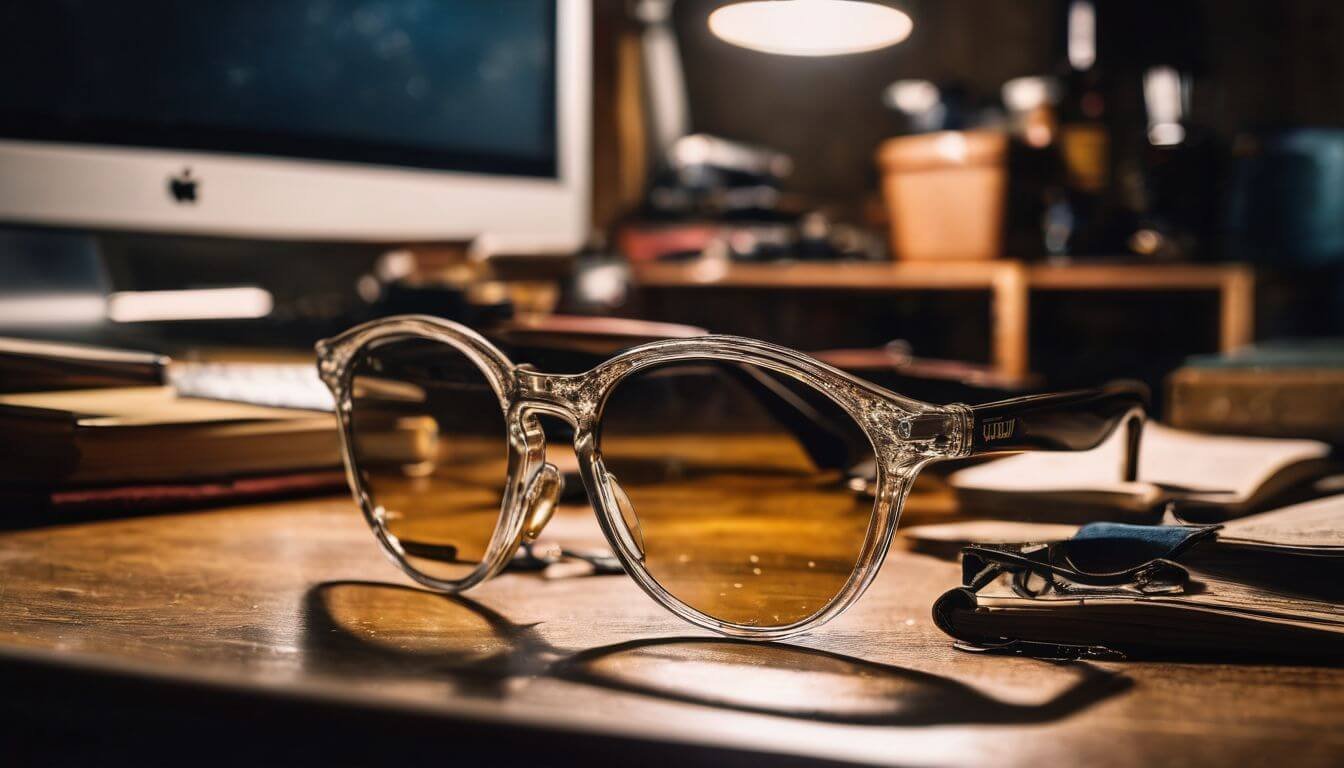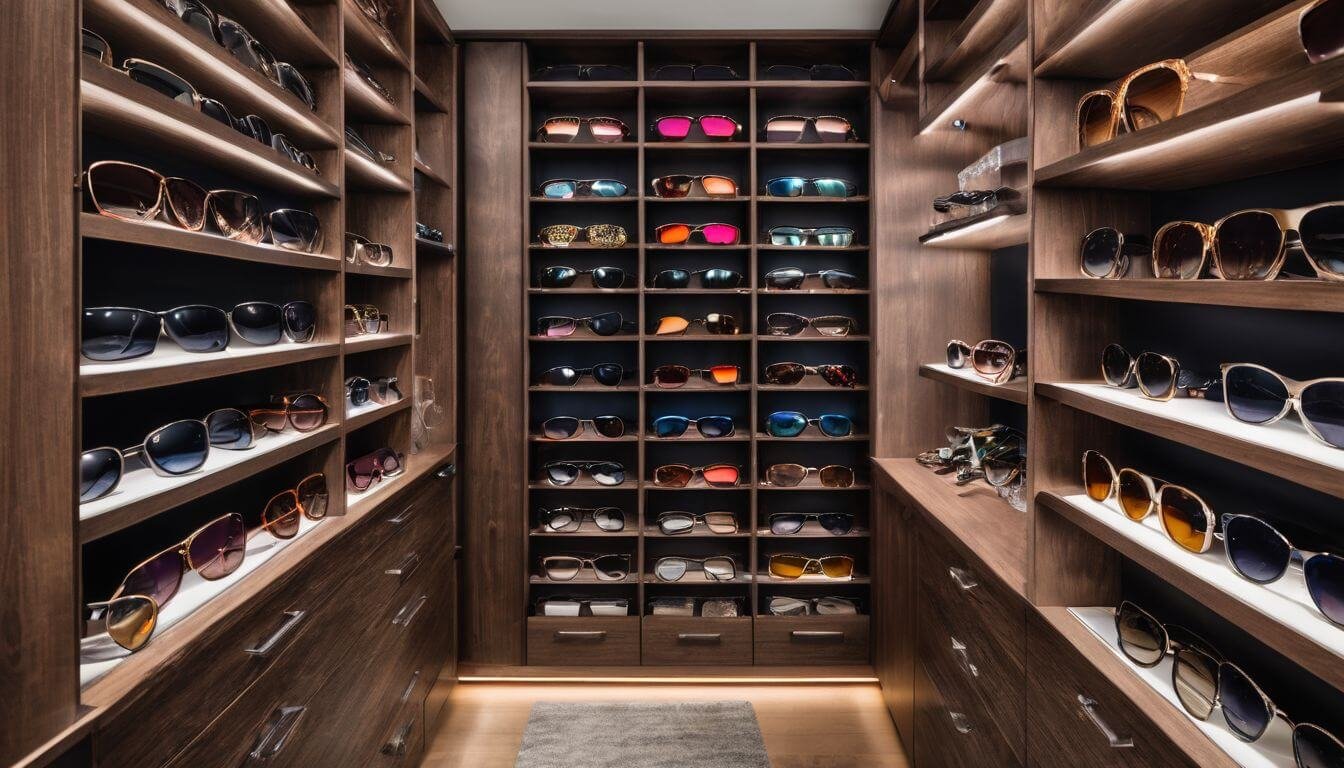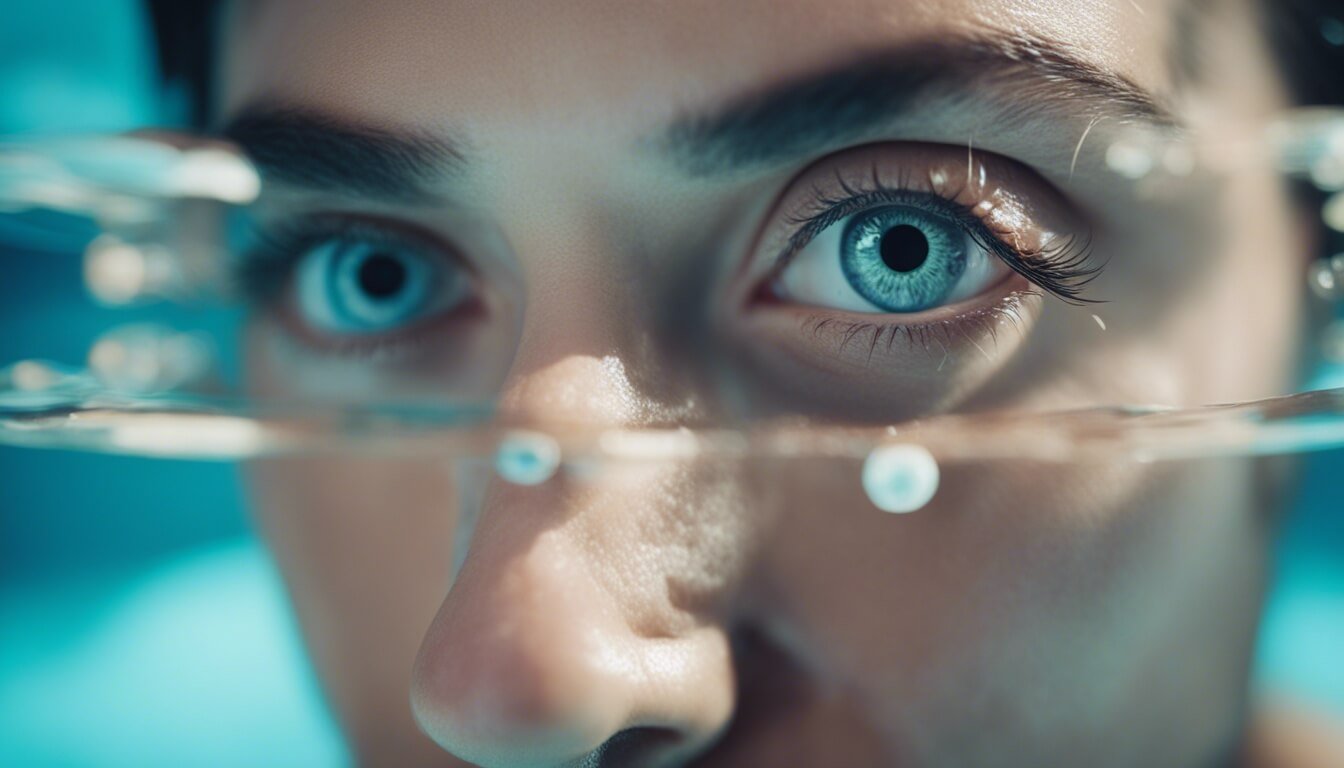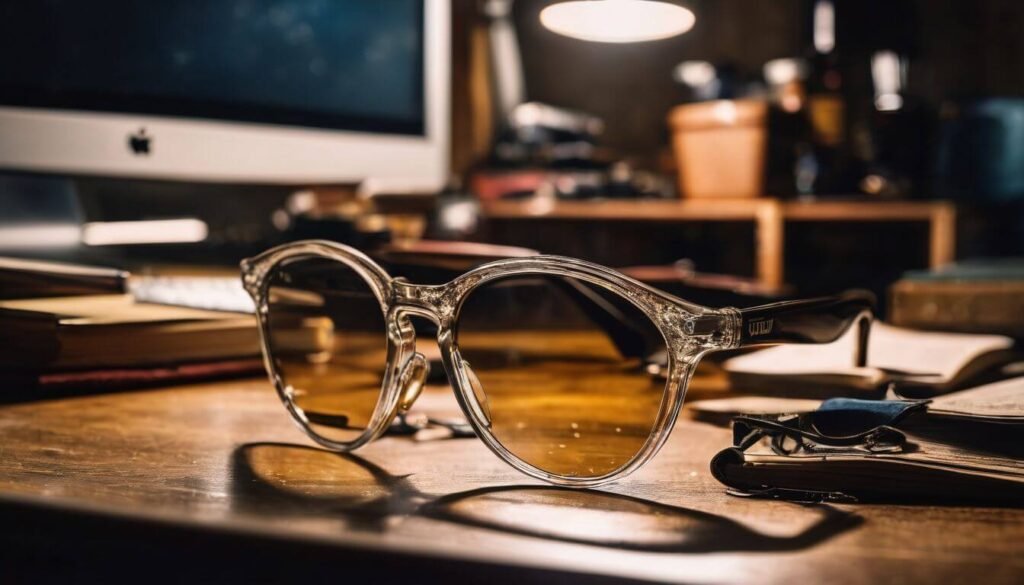
What Happens If You Don’t Wear Your Glasses: Effects On Eyesight And Eye Health Explained
Hey there, glasses squad! Ever wondered what happens if you don’t wear your glasses? I know, sometimes they can be a bit of a fashion buzzkill or just feel like one more thing to remember.
But before you leave them on the nightstand and bolt out the door, let’s chat about why your eyewear is more friend than foe.
Glasses aren’t just for looks; they’re your personal window to clarity, literally reshaping how you view the world. There are plenty of myths floating around that skipping glasses is a rebellious act against worsening eyesight or creating “lazy eyes.” Well, spoiler alert: that’s not quite how it works.
Your peepers won’t get beefier from squinting—sorry folks!
Now, giving your glasses a day off might seem harmless at first glance (pun intended), but doing so regularly could lead to some real headaches—and I’m talking more than metaphorical ones—plus tired eyes that have to fight harder just to focus.
Those over-the-counter readers might not be evil villains for your vision either; however, guessing games with prescriptions isn’t ideal.
Perhaps most importantly: Not wearing proper eyewear won’t doom you with permanent eye damage overnight (phew!), but it sure doesn’t help keep things comfortable or safe in the long haul.
Eager for all the deets to keep those windows to the soul healthy and happy? Let’s dive into this ocean of clarity together.
Key Takeaways
- Glasses help your eyes by bending light to make everything look clear. Not wearing them can cause headaches and tired eyes from straining to see.
- Myths like “glasses weaken your eyes” or “not wearing glasses improves vision” are not true. Your glasses don’t harm your eyesight; they’re there to correct it.
- By not wearing the right eyewear, you could risk accidents by tripping or bumping into things because of blurry vision.
- Contact lenses and surgeries like LASIK are alternatives if you don’t want to wear glasses, but always talk to an eye doctor first.
- Regular eye exams are key for maintaining good vision health whether you wear glasses or choose other options.

Understanding Vision and Prescription Glasses
Glasses are like magic for your eyes. They help you see things clear and sharp. Your eye is like a camera, but sometimes it needs help focusing. That’s where glasses come in. They bend light to hit the right spot in your eye, so everything looks just right.
Some folks think that if you wear glasses, they make your eyes weak or lazy over time – this isn’t true! Wearing glasses doesn’t hurt your eyes or make them get worse. It’s important to know wearing the correct prescription helps keep your vision happy and healthy.
How Glasses Correct Vision
Glasses work like magic for your eyes, but here’s the simple trick they do. They bend the light that comes into your eyes so you can see clearly. If things look blurry, it means the light isn’t hitting the right spot on the back of your eye called the retina.
Lenses in glasses are super smart—they change how much light bends either more or less to get it just right.
Now, if you’re nearsighted or farsighted, don’t sweat it; lenses are shaped differently to help out. Nearsighted folks have lenses that spread the light out because without glasses things far away get all fuzzy.
And if you’re farsighted? You’ve got lenses that squish light together so close-up stuff doesn’t look like a blur. Just remember—glasses make sure everything is crystal clear!

Myths vs. Facts
So, there’s a bucketload of myths swirling around about our trusty vision-correctors, right? Well, it’s about time we sift through the buzz and get down to the nitty-gritty facts. No more hearsay, only what’s true and tried. Buckle up, ’cause we’re going full myth-buster mode!
| Myths | Facts |
|---|---|
| Wearing glasses will weaken your eyes over time. | Quite the opposite! 10/10 Optics assures us that glasses don’t make your eyesight worse. |
| If you skip wearing glasses, your vision will get better on its own. | Not a chance. You might end up with headaches and eye strain, especially if farsighted. |
| Glasses can become a crutch, making your eyes dependent on them. | Improving vision isn’t a workout regimen; you won’t ‘weaken’ your eyes by correcting them. |
| Over-the-counter readers could harm your eyesight. | Nope, they’re harmless, but if you’re squinting at this text, an eye exam wouldn’t hurt. |
| Not wearing your prescription glasses will cause permanent vision damage. | That’s false. While it can lead to discomfort, your eyes won’t be permanently damaged. |
| Wearing the wrong prescription can cause long-term harm to your eyes. | It won’t scar your peepers for life, but it sure won’t feel good in the meantime! |
Now, with this table, we’re setting the record straight. It’s like peeling off that smudgy lens of misinformation and seeing clearly (with or without our glasses on). Remember, looking sharp and seeing sharper is the goal—and thankfully, these myths are just phantoms that can’t hold up to the facts. Keep those peepers happy, folks!

Immediate Effects of Skipping Glasses
If you skip wearing your glasses, you might notice right away your eyes have to work extra hard. This can make you squint or get headaches and feel tired. Especially if things far away are blurry (nearsightedness) or close-up stuff is hard to see (farsightedness).
Your eyes aren’t getting help from the glasses they need.
Sometimes people who don’t wear their glasses can bump into things or trip because they don’t see well. Not fun at all! Plus, kids could do worse in school if they’re always trying to focus and end up with headaches instead of learning.
It’s important we take care of our eyes by using the glasses our doctors tell us will make things clear again.
Short-Term Physical Discomfort
Skipping your glasses can lead to a rough day, believe me. Your eyes have to work harder, and the world looks fuzzy. That’s no fun! Headaches might join the party too—think of them like unwanted guests that just won’t leave.
And if you’re farsighted? Whew, imagine feeling tired all over from a battle with teeny-tiny text or distant objects.
Squinting becomes your go-to move without glasses. It’s like trying to see through a keyhole—the view’s not great and after a while, it gives you quite the headache (ouch!). Without those lenses, it’s an uphill climb for clear vision; things get blurry fast.
Sure, your eyes won’t get weaker in this mini-marathon—it isn’t weightlifting for peepers—but they’re definitely begging for some rest under those strained conditions!
Increased Risk of Accidents
Not seeing well means you might trip, slip, or bump into things. Imagine walking around blurry-eyed and not spotting a step down—ouch! Or driving without your glasses.. yikes, that’s asking for trouble.
Now think about using power tools or cooking in the kitchen; it’s easy to see how fast accidents can happen if you can’t see clearly.
Kids playing sports or riding bikes need to wear their glasses too. They have to see that ball coming or spot rocks on the road. Everyone’s safer when they see well, so wearing glasses isn’t just about clear vision—it helps dodge those nasty surprises life throws at us.

Long-Term Implications
If you skip wearing your glasses often, over time you could end up with some troubles. Your vision might not get worse forever. But still, there’s a chance that you’ll feel icky more often.
Squinting and eye strain can lead to headaches that no one wants.
Now, let’s think about life in general. Having a hard time seeing can be a real pain for doing stuff like reading or driving safely. Eyes working too hard could make everyday things harder to do.
Kids and teens especially need to wear their glasses right. Their eyes are still growing and changing. If they don’t wear their glasses, it might lead them to have bigger problems later on.
Potential for Vision Deterioration
Your eyes might feel tired if you skip wearing your glasses. This is because they have to work extra hard to see clearly. Now, some folks worry that not using their spectacles will make their vision get worse over time.
That’s a myth! Actually, going without glasses won’t damage your eyes or cause your sight to go downhill permanently.
Sure, when you don’t wear the right prescription, your peepers strain and this makes things blurry temporarily—but it’s not forever trouble. Headaches can pop up too. Think about it like this: leaving out glasses doesn’t train your eyes any more than sitting around trains muscles for a marathon.
It just leaves them struggling for no good reason—ouch! And remember (even though I said I wouldn’t remind you), wearing glasses doesn’t make things worse—it’s there to help you see better right now!
Impact on Quality of Life
Not wearing glasses can mess with your day in a big way. Imagine trying to read signs or use your computer and everything’s blurry – so frustrating, right? Squinting all the time leads to headaches and feeling worn out.
It’s tough when you’re trying to get stuff done but your eyes just won’t cooperate!
Life without the right glasses means more mistakes and maybe even getting hurt because you didn’t see something clearly. For kids and grown-ups, this can make learning hard, work tricky, and playing sports less fun.
Bottom line – skipping the specs isn’t worth it. Trust me, life’s better when you don’t have to guess what’s in front of you!

Special Considerations
Kids and teens need to be really careful about wearing glasses. Their eyes are still growing, so the right glasses help them see clearly. If they skip out on their specs, they might end up with crossed eyes or other eye troubles.
Grown-ups have to watch out, too. They might not think it’s a big deal if they leave their glasses off for a bit. But doing this often can make things like reading or driving super hard.
And nobody wants blurry vision when trying to enjoy life or get stuff done! Plus, the older we get, our vision changes and that can mean needing new glasses more often.
Everyone’s eyes are unique. So whether you’re young or old, if you wear prescription glasses, stick with them to keep your peepers happy and healthy!
For Children and Adolescents
Young eyes need glasses just like adults do, sometimes even more. Glasses help them see the world clearly and learn things better. If they don’t wear their glasses, they might not do as well in school because blurry words and pictures make learning tough.
Plus, when kids squint to see better, this can lead to nasty headaches.
Glasses also play a huge part in how children’s eyes grow. Eye doctors say that the right prescription keeps young eyes healthy. Without glasses, some kids might get lazy eyes or other problems that stick around for life.
Wearing their specs is super important for keeping those little peepers in tip-top shape!
For Adults
Grown-ups, listen up! Even if you’ve been rocking the spec game for years, not wearing your glasses can really mess with your day. Imagine trying to read a menu or catch a text on your phone and everything’s just a blur.
frustrating, right? Your eyes have to work overtime just to make sense of it all. This could lead to some real headaches and tired eyes (yeah, we’re looking at your presbyopia!). Reaching for those reading glasses isn’t admitting defeat; it’s giving your peepers the backup they need.
Adults often juggle a million things at once – work tasks, driving around town, keeping tabs on kids running every which way. Skip out on wearing those prescribed lenses and boom – you’re setting yourself up for some nasty squint-induced headaches or worse yet—the scare of an accident because something wasn’t quite clear enough in the distance.
So slap on those frames! They’re not there to cramp your style but to help you see life in HD without any extra eye gymnastics.

Addressing Common Reasons for Avoidance
Some folks skip wearing glasses because they worry about looks or comfort. They think, “Glasses will make me look nerdy,” or “They’ll pinch my nose.” But hey, today’s frames are stylish and comfier than ever! You can find ones that fit well and show off your style.
Others believe the myth that glasses weaken eyes – not true. Glasses help you see better without hurting your eyes. Not wearing them just makes for a blurry day and tired peepers from all that squinting.
Trust me, rocking those specs is way better than a headache from straining to read signs!
Cosmetic Concerns and Comfort
Many folks skip their glasses because they worry about how they look. But hey, your style doesn’t have to take a hit! There are so many frames out there—you can find ones that fit your face and fashion sense just right.
Think of glasses as another way to show off your style, like a cool watch or snazzy shoes.
And if the issue’s comfort, no sweat—there’s a solution for that too! Frames come in all shapes and sizes; some are so light you might forget you’re even wearing them. Plus, with a little help from an eye expert, you can get a fit that feels custom-made for you.
Glasses shouldn’t be a hassle—they’re here to make life clearer and easier, not give you grief!
Misconceptions About Dependency
Some folks think that if they wear their glasses too much, their eyes will get “lazy.” But hey, our peepers aren’t muscles that get weak from too little exercise like our legs might.
The truth is, wearing glasses doesn’t make your eyes worse. 10/10 Optics backs this up; they say clear as day that your sight won’t go downhill just from using your specs.
Now let’s tackle another myth — the idea that you don’t need to put on those lenses all the time. Guess what? Skipping out on wearing your prescription glasses can leave you with a headache or feeling beat because your eyeballs have to work overtime trying to see clearly (no thanks!).
And here’s the kicker: not using them won’t toughen up your vision; it’ll just give you grief in the short run without making things better in the long haul.

Alternatives to Glasses
You might not like glasses, or maybe they just don’t work for you. No worries! There are different ways to help your eyes see better. Contact lenses are a cool choice because they let you play sports and do other activities without frames getting in the way.
Plus, nobody can even tell you’re wearing them.
For a more long-term fix, think about laser surgery or other procedures that doctors can do to make your vision clear. These options need some thinking and talking with an eye doctor to see if they’re right for you.
But hey, it’s awesome we’ve got choices beyond just wearing glasses!
Contact Lenses
Contact lenses can be a great choice if glasses aren’t your thing. They sit right on your eyes and help you see without anyone knowing. It’s like magic! Say goodbye to the worry of losing your glasses or having them get in the way during sports.
Contacts let you move freely and still keep things clear.
Thinking about swimming or getting caught in the rain? No problem! Contact lenses won’t fog up like glasses can. Plus, they come in different types – like ones for day use or even sleeping.
Just make sure to talk to an eye doctor first, because just like shoes, contacts need to fit just right. You don’t want any trouble while wearing them, do you? So go ahead and give contact lenses a try – they might be just the change you need!
Surgical and Non-Surgical Options
Sometimes you might not want to wear glasses. That’s okay because there are other ways to help your eyes see clearly. Let’s look at some options that don’t involve wearing glasses.
- LASIK Surgery: This is a popular choice for fixing vision problems. A doctor uses a laser to reshape your eye, which can mean no more glasses! It works best if you’re nearsighted, farsighted, or have astigmatism.
- PRK: Similar to LASIK, but here the top layer of the eye is gently removed before reshaping it with a laser. It takes a bit longer to heal from PRK than LASIK.
- Orthokeratology (Ortho-K): Think of it as braces for your eyes! You wear special contact lenses at night that gently shape your eyeballs. When you wake up and take them out, you can see clearly all day without any glasses.
- Vision Therapy: This isn’t surgery; instead, it’s like eye exercises. You work with an eye doctor to strengthen your eyes. It’s good for folks who have trouble where their eyes don’t work well together.
- Implantable Lenses: These are tiny lenses put inside your eyes by a doctor. They act just like the lenses in glasses but are right inside your eye! They’re good for people whose eyesight is really weak or who can’t have LASIK.

Embracing Corrective Eyewear
Getting used to new glasses can take a little time. Your eyes and brain need to adjust to the sharp vision your lenses provide. This is normal, just like breaking in a new pair of shoes.
You might feel weird at first, but soon enough, you won’t even notice them. They become part of your daily life.
Seeing clearly is so important! Make sure you go for regular eye exams too. The eye doctor will check if your prescription has changed and help keep your peepers healthy. Wearing the right glasses helps you live better because everything looks clear and bright.
So rock those specs with pride—they’re doing great things for your eyes!
Adjusting to New Prescriptions
So you’ve got new glasses, huh? At first, they might feel odd. Your vision seems wonky and everything’s a bit off-kilter. It’s like your eyes need to learn how to see all over again.
But don’t fret – this is totally normal! It takes some time for your brain and eyes to get used to the new prescription.
Here’s a tip: wear your new glasses as much as you can. The more you wear them, the quicker your eyes will adjust. Sure, it might be uncomfortable at first with that weird fishbowl feeling making you dizzy (ugh!), but give it a week or so.
Before long, it becomes second nature, and things start looking crystal clear—no more blurry signs or squinting! Just think of each day as one step closer to having super sharp vision with those new specs on! Keep at ’em; those lenses are on Team You!
The Importance of Regular Eye Exams
Getting your eyes checked often is super important. Eye doctors can see if you need new glasses or if something else is going on with your eyes. It’s like getting a check-up for your eyes to make sure they’re healthy and seeing the best they can.
Sometimes, you might feel fine, but the doctor could find a sneaky eye problem that needs fixing.
Let’s say you’ve got this pair of glasses, right? You love them, but it’s been ages since anyone checked if they’re still good for you. If you keep wearing old glasses without getting eye exams, you won’t know if they’re helping or not.
An eye exam could tell you “Hey! Time for an update!” – And boom! Suddenly everything’s clear again. Plus, these exams can stop big problems before they get worse – smart move!
Conclusion
So, here’s the scoop: Skipping your glasses doesn’t make sense for your eyes or your day-to-day life. When you don’t wear them, things get blurry and that could lead to a headache or even a nasty bump on the head if you’re not careful! Remember, wearing those specs is like giving your eyes a little high-five; they help you see clearly and keep everything in focus.
And hey, who doesn’t want to avoid squinty-eye headaches? Keep rocking those glasses – your peepers will thank you!
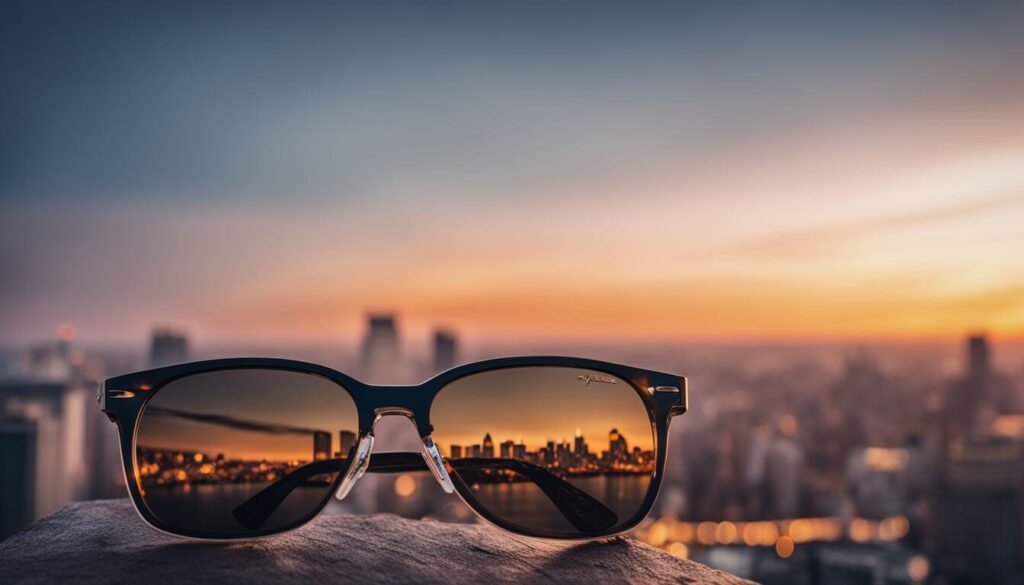
FAQ
Q: What happens if I don’t wear my glasses?
A: If you don’t wear your glasses, you may experience blurred or double vision, get headaches, and potentially cause more serious damage to your eyes. For example, if you have myopia or hyperopia and fail to wear your corrective lenses, your eyes will have to work harder to focus, which can lead to strain and even worse vision over time.
Q: Can my eyesight get worse if you do not wear your glasses all the time?
A: Yes, it can potentially make your eyes strain and thus, worsen your vision. The American Academy of Ophthalmology recommends wearing your glasses as prescribed to maintain optimal visual health.
Q: Will the effects of not wearing my glasses make my eyesight worsen more rapidly?
A: Not necessarily. However, not wearing your glasses might mean your eyes have to work harder and could put you at risk for eyestrain. The eyestrain wouldn’t necessarily make your eyesight get worse, but it could make you feel discomfort.
Q: How can continually not wearing glasses affect my eyes?
A: Continually not wearing glasses can cause you to squint and strain your eyes more, leading to headaches, blurred vision, and potential damage to your eyes in severe cases. Consult your doctor to understand the possibilities based on your specific eye conditions.
Q: Can my vision change if I stop wearing my glasses?
A: Not wearing your glasses won’t result in any permanent changes to your vision, but it may cause temporary issues like eyestrain and blurry vision. Over time, as you get older, your vision can change regardless of whether you wear glasses or not.
Q: Could myopia get worse without glasses?
A: Yes. For people with myopia (nearsightedness), not wearing glasses may exacerbate the condition, as your eyes will have to work harder to compensate for the blurred vision. It’s always best to wear your glasses to help maintain good eyesight.
Q: Does wearing glasses make your eyes dependent on them?
A: No, wearing glasses does not make your eyes more dependent on them. Glasses simply adjust for problems in your eyes, but they don’t change your eyes themselves. As you get older, your vision may naturally decline, but this is not related to wearing glasses.
Q: Can corrective lenses get worse without glasses?
A: Wearing corrective lenses helps to normalize your vision, but if you stop wearing your glasses, your eyes will not become worse as a direct result. However, you will likely find previous symptoms such as blurred vision or headaches reoccurring, as your eyes may struggle to adjust to seeing without the corrective lenses.
Q: Will not wearing glasses make my eyesight worse if I suffer from farsightedness?
A: Yes, for people with hyperopia (farsightedness), not wearing glasses can make eyes work harder to focus on objects up close, leading to eyestrain, headaches, and blurred vision. Wearing glasses can help to remedy this.
Q: Can not wearing my eyeglass prescription lead to more serious vision problems?
A: Not wearing your prescription glasses doesn’t typically lead to more serious conditions. However, it can exacerbate related symptoms such as headaches, blurred vision, and eye fatigue. In rare cases, constant straining can lead to further eye conditions. It’s advised to wear your glasses as per your doctor’s recommendation.



